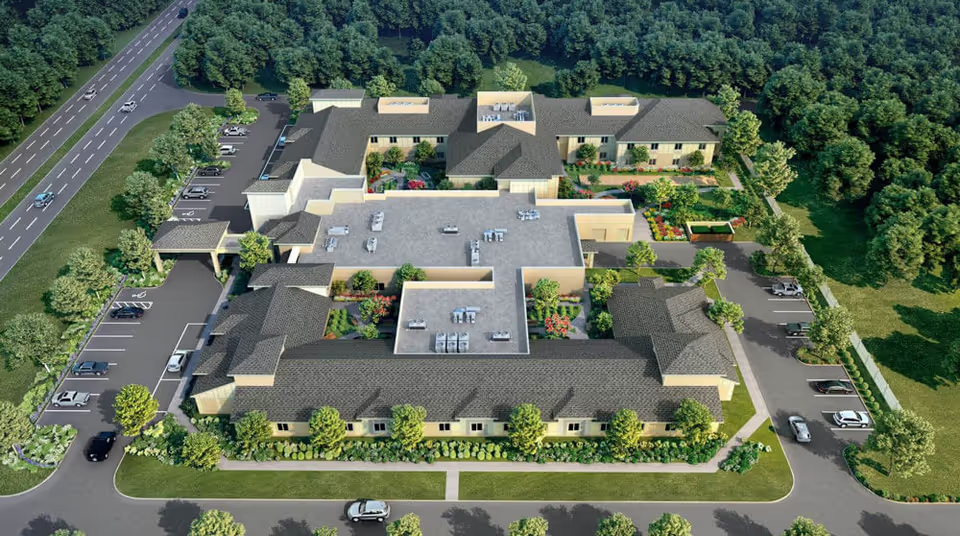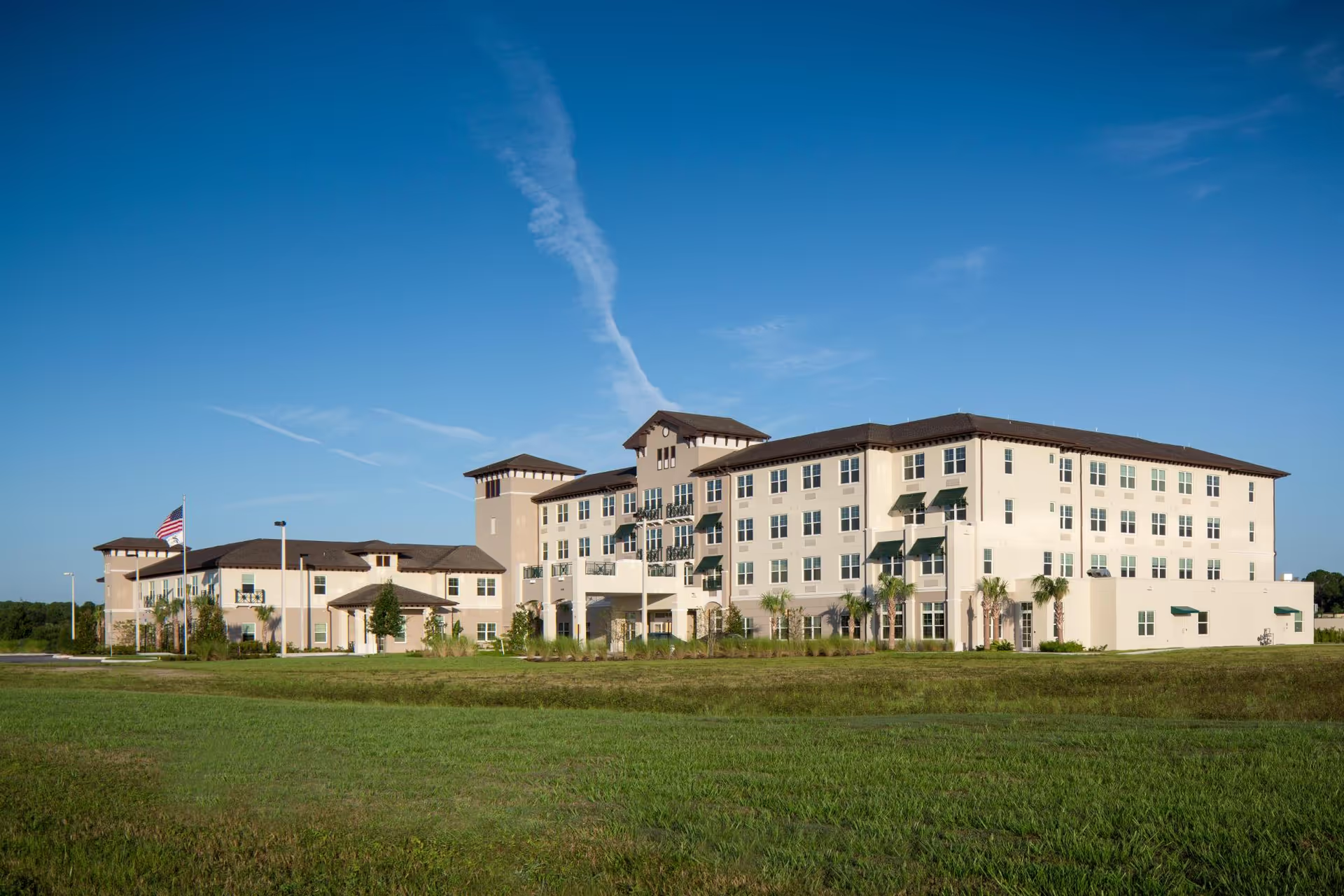Overall impression Wesley Woods Towers receives predominantly positive feedback centered on its staff, community atmosphere, location and value. Many reviewers emphasize friendly, professional and responsive staff members who learn residents' names, provide personalized attention and help with transitions. The community's strong ties to Emory University — including campus bus access, proximity to Emory University Hospital and on-site therapy/chaplain services — are repeatedly highlighted as significant advantages. Reviewers commonly describe the grounds as a major asset: a wooded campus with walking trails, gardens, bocce court, river walk and attractive views (including 13th-floor perspectives) that create a country-club feel close to the city.
Care quality and staff Care and frontline service are among the most consistently praised aspects. Multiple accounts report fluid staff-resident interactions, quick maintenance responses, weekly housekeeping and laundry, medication management support, and helpful front-line teams (marketing, move-in, maintenance, dining staff). The presence of a full-time chaplain, physical therapy and rehabilitation services on property is appreciated, as is the community’s acceptance of all faiths and volunteer involvement. Many reviewers explicitly say residents are happy, content and make friends quickly — indicating a strong social and emotional support environment.
Facilities, apartments and location Wesley Woods Towers offers a range of floor plans from studios and tiny efficiencies up to two-bedroom apartments. Private units often include kitchens, refrigerators and microwaves; reviewers note roomy closets in some units and comfortable, well-lit rooms. At the same time, the building is older and several reviews call out the need for updates: awkward layouts (angled walls), worn guest beds, and areas with aging HVAC and electrical systems. Common spaces and grounds are frequently described as clean, well-kept and inviting. The location is a standout: downtown-Emory adjacency, wooded privacy, short access to medical care, and a campus that supports social and outdoor activities.
Dining and food service Dining is a mixed but prominent theme. Many reviewers praise the midday or main meal as tasty and plentiful, enjoy regular menus and appreciate options like take-home containers. However, dining problems recur: some mention that only one main meal is provided (lunch-only), which was a disappointment for those expecting more flexible dining. Staffing shortages in the dining area, inconsistent service, seating restrictions (including rules about where residents can sit and limited party sizes), holiday kitchen problems (Styrofoam containers, limited options), and uneven food quality (from “terrific” to “tasteless/overdone”) appear across reviews. These operational inconsistencies are a frequent source of frustration and a clear area for improvement.
Activities and social life Activity offerings are generally a strong point: many daily and weekly programs, outings to shopping and movies, ice cream socials, meditation groups, art opportunities and lively dining-room conversations. The community feel is often described as vibrant and welcoming, with residents quickly forming friendships. A minority of reviewers sought more or different group activities (notably more offerings tailored to male residents) or reported that COVID restrictions temporarily reduced group programming. Overall, though, the social calendar and resident engagement are frequently highlighted as strengths.
Management, operations and concerns Several operational concerns appear repeatedly. Reviewers report staff shortages in maintenance, front-desk coverage and dining; elevator outages and occasional long waits; scheduling inaccuracies; and perceptions of limited security in some instances. The building’s age contributes to infrastructure problems (old HVAC, electrical systems) that some reviewers noticed. Administrative issues such as billing and scheduling are described as generally easy to manage by some families, while others reported inaccuracies or frustration. These mixed reports indicate that while day-to-day operations are often handled well, there are intermittent service lapses tied to staffing and building-age constraints.
Value and recommendation Many reviewers consider Wesley Woods Towers an affordable, good-value option for independent living near Emory. Positive factors in that assessment include lower price relative to alternatives, the convenience of Emory affiliation, on-site therapy and chaplain resources, quick maintenance, and a strong community atmosphere. Still, value judgments are tempered by the building’s age, periodic dining and staffing issues, and limited meal service for some residents. For prospective residents who prioritize staff engagement, social life, medical proximity and outdoor campus amenities, Wesley Woods Towers is often recommended. For those who prioritize newer facilities, a full dining program, or robust on-site infrastructure without occasional maintenance or elevator issues, it may be worth touring and asking targeted questions about current dining plans, security measures, infrastructure upgrades, and staffing levels.
Patterns and final notes The dominant patterns are clear: consistently high marks for staff friendliness, responsiveness and resident-centered care; strong praise for grounds, location and Emory connections; and frequent reports of an active, welcoming resident community. Counterbalancing strengths are recurring operational drawbacks mainly tied to dining consistency, building age and periodic staffing shortages. The reviews suggest that many residents and families are very satisfied and would recommend Wesley Woods Towers, but that prospective move-ins should confirm current dining arrangements, maintenance staffing and any planned facility updates during a tour. Overall, Wesley Woods Towers presents as a caring, community-oriented, cost-conscious option with excellent location and staff — with some operational and facility-age trade-offs to weigh.







